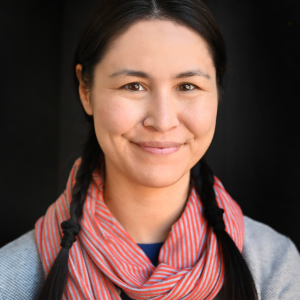Natasha is utilizing her education to propel her desire to serve as a restorative practices resource to the community she cares for.
Natasha Akery is a current student at the IIRP Graduate School and a secondary language arts teacher and professional developer at Academic Magnet High School in North Charleston, South Carolina. She teaches literature and designs professional development programs with a restorative practices lens to encourage students and teachers to think about the world relationally and communally. She aims to serve as a resource to her entire school district for bringing relationship- and community-building into all school spaces.
Q: What brought you to the IIRP?
A: Early in my teaching career, I was introduced to restorative practices through professional development offered by my school district. When I found out that one of the trainers was pursuing a master's degree in restorative practices from the IIRP, I knew I wanted to pursue that path, as well. In 2022, I applied for candidacy and was accepted into the master's program with a specialization in education.
The two courses that have had the greatest impact on my studies are "Narrative Inquiry for Empowering Facilitators" and "Social and Emotional Learning in the Restorative Classroom." Learning about narrative inquiry through a restorative lens helped me understand that the field of restorative practices is still evolving and there is room for inquiry. Learning about the intersection of social-emotional learning and restorative practices has helped me in my profession as a secondary teacher so that I can deepen my practice and pedagogy from this framework.
Q: What does your professional work entail, and what makes you passionate about it?
A: My professional work in restorative practices is primarily in my classroom and school district. I use tools such as circle discussions, affective language, and restorative questions in language arts. I also design professional development sessions for language arts and social sciences teachers using restorative practices principles as the foundation of their curriculum. I am passionate about restorative practices because it aligns with my worldview. I see desirable results in relationships and communities when I use and witness restorative practices. I also want to ensure that restorative practices are used with integrity.
Q: What would you like to see in this restorative work in the future?
A: In the future, I would like to see restorative practices be a fundamental part of undergraduate and graduate-level education coursework and teacher certification programs. Once I earn my degree, I hope to be a resource in my school district and the school where I teach. I already create and facilitate professional development opportunities through a restorative practices lens, and I would like to create other opportunities that can reach students and their families.


